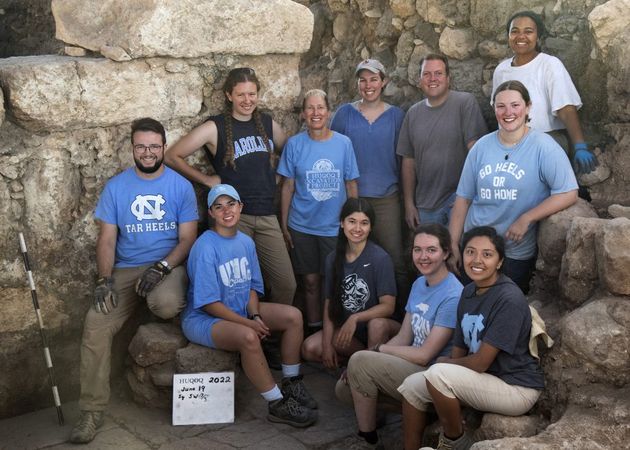Archaeologists of University of North Carolina at Chapel Hill found 1,600-year-old mosaics with the images of Deborah and Jael in an ancient synagogue in Israel.
![irst known depiction of the biblical female characters of the book of Judges Deborah and Jael. / [link]UNC[/link]](https://cms.evangelicalfocus.com/upload/imagenes/62d8005da0cb8_mosaiccar.jpg) irst known depiction of the biblical female characters of the book of Judges Deborah and Jael. / [link]UNC[/link]
irst known depiction of the biblical female characters of the book of Judges Deborah and Jael. / [link]UNC[/link]
A team of specialists and students led by University of North Carolina at Chapel Hill professor Jodi Magness recently unearthed the first known depiction of the biblical female characters of the book of Judges Deborah and Jael.
Magness pointed out that “this is the first depiction of this episode and the first time we have seen a depiction of the biblical heroines in ancient Jewish art”.
“Looking at the book of Joshua chapter 19, we can see how the story might have had special resonance for the Jewish community at Huqoq, as it is described as taking place in the same geographical region, the territory of the tribes of Naphtali and Zebulon”, he added.
The team returned to Israel’s Lower Galilee to continue unearthing nearly 1,600-year-old mosaics in an ancient Jewish synagogue at Huqoq, "focusing this season on the southwest part of the synagogue, which was built in the late fourth-early fifth century C.E", they said.
The discovered mosaic panels are made of local cut stone from Galilee. The mosaic is divided into three sections, one shows Deborah seated under a palm tree looking at military commander Barak; the small part of the middle section that is is preserved a second appears to be Sisera seated, and the third depicts Sisera lying deceased on the ground, bleeding from the head as Jael hammers at stake through his temple.
"The value of our discoveries is that it helps fill in the gaps in our information about, in this case, Jews and Judaism in this particular period. It shows that there was a very rich and diverse range of views among Jews", underlined Magness.

Furthermore, the archaeologists found among the mosaics a fragmentary Hebrew dedicatory inscription inside a wreath, flanked by panels which show two vases that hold sprouting vines.
The vines form medallions that frame four animals eating clusters of grapes: a hare, a fox, a leopard and a wild boar.
The discoveries are part of the Huqoq Excavation Project, which is now in its 10th season after being paused for two years, due to the COVID-19 pandemic.
Mosaics were first discovered at the site in 2012, and work continued each summer. They cover the synagogue’s aisles and main hall depicting events from the Book of Judges, Genesis, Exodus, Numbers, Isaiah or Jonah.
They have been removed from the synagogue for conservation, and the excavated areas have been backfilled. Excavations are scheduled to continue in summer 2023.

Las opiniones vertidas por nuestros colaboradores se realizan a nivel personal, pudiendo coincidir o no con la postura de la dirección de Protestante Digital.
Si quieres comentar o